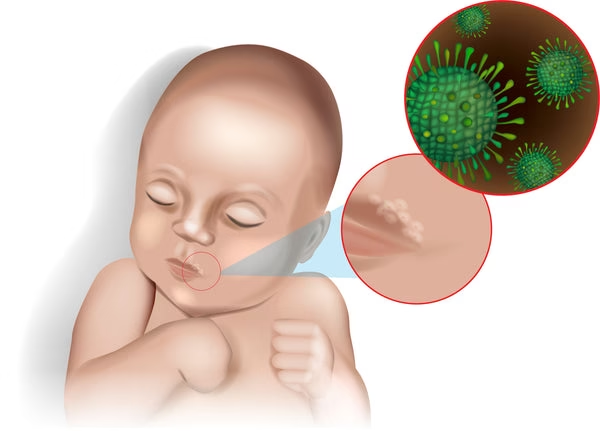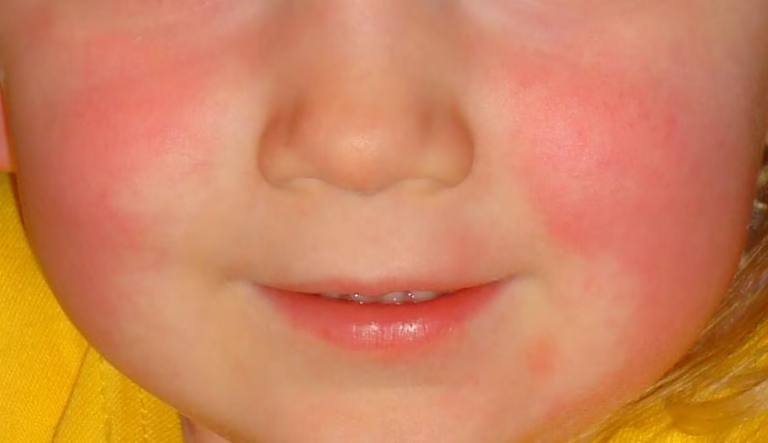Why Does My Newborn Keep Vomiting? Uncover the Causes
Newborn vomiting can be due to infant reflux, overfeeding, or an immature digestive system. Consistent vomiting after every feed may indicate a more serious condition.
Caring for a newborn is a delightful yet challenging experience, and it’s normal for parents to worry when their baby starts vomiting. It’s essential to understand that occasional spitting up after feeding is quite common in young babies, as their digestive systems are still developing.
Factors like feeding technique, the baby’s posture during and after feeds, and the adjustment to milk can play a role. Nevertheless, persistent or forceful vomiting can be concerning and may require medical attention. Parents should observe the frequency and severity of the vomiting and seek a pediatrician’s advice if they notice any alarming signs. Understanding the reasons behind a newborn’s vomiting is crucial in providing the right care and ensuring their well-being.
Normal Vs. Worrisome Vomiting
Many newborns spit up after feeding, which is often normal. These episodes are typically short and not stressful for your baby. It’s common and not usually a sign of illness.
Signs of normal spitting up might include mild burping or spitting up small amounts of milk. Your little one should still seem happy and content afterward.
| Normal Spitting Up | Worrisome Vomiting |
|---|---|
| Occurs occasionally after meals | Constant or very frequent |
| Baby is calm afterwards | Baby seems distressed |
| Spit-up is a small amount | Large volumes or projectile |
| Baby continues to gain weight | No weight gain or weight loss |
On the other hand, excessive or forceful vomiting indicates a possible health issue. In such cases, contact your pediatrician. Look for signs like projectile vomiting, vomiting after every feeding, or your baby being upset.
Common Causes Of Newborn Vomiting
Overfeeding can cause newborns to vomit. Babies have small stomachs and may spit up if they drink too much milk. Young infants might not know when they’re full. So, feeding them less milk at a time can help. This means giving them smaller amounts but more often.
Concerning muscle development, a condition called pyloric stenosis might be the cause. With this, a baby’s stomach muscles grow too thick. Food cannot move from the stomach into the intestines as it should. If your baby vomits a lot, a doctor should check them. This can ensure if the muscles at the stomach outlet are developing properly.
Intolerance And Allergy Considerations
Newborns often spit up due to their still-developing digestive systems. Regular vomiting can suggest a more serious condition, like a cow’s milk protein allergy. This condition is among the most common food allergies in infants. It occurs because their immune systems react to proteins found in cow’s milk.
Do note, symptoms can be similar to lactose intolerance. Yet, lactose intolerance is rarer in newborns. This is different from an allergy as it is a difficulty digesting lactose due to lack of enzymes. For infants with cow’s milk protein allergy, the reaction could lead to swelling, rashes, or vomiting. If you suspect an allergy, consult a pediatrician for proper diagnosis and treatment alternatives.
| Allergy/Intolerance | Symptoms |
|---|---|
| Cow’s Milk Protein Allergy | Swelling, rashes, vomiting |
| Other Food Intolerances | Gastrointestinal distress, vomiting |
Digestive Tract Obstructions
Newborn vomiting can be alarming and may point to obstructions in the digestive tract. Symptoms often include repeated vomiting, a bloated abdomen, and noticeable distress. Babies might also show signs of difficulty feeding or discomfort after eating.
Parents should observe for persistent vomiting, which is not typical. It could indicate a more serious issue like pyloric stenosis or intestinal malrotation. Both conditions require urgent medical attention.
Diagnostic approaches involve a thorough examination. This includes ultrasound or sometimes X-rays. In certain cases, a specialist consultation may be necessary. Early detection is vital for effective treatment and to prevent complications.
Infections Affecting Newborns
Newborns sometimes face infections that cause vomiting. A common infection is gastroenteritis. This is an inflammation of the stomach and intestines.
The impact of gastroenteritis on newborns can be harsh. Symptoms include frequent vomiting, upset stomach, and dehydration. Attention is required to prevent complications.
Viral infections are common culprits. These include the rotavirus or norovirus. A baby with a viral infection might show signs of irritability, cry more, or have a fever.
Reflux In Newborns
Many newborns face gastro-oesophageal reflux, causing them to vomit often. This condition means their stomach contents flow back up into the oesophagus. It’s normal for babies as their digestive systems are still developing.
Small, frequent feedings can help manage reflux. Also, holding your baby upright for a while after feeding might be beneficial. Consulting a pediatrician is crucial if vomiting is persistent or concerning.
When To Seek Medical Attention
Parents notice certain signs in their baby, it’s time for a doctor visit. Signs like vomiting many times a day or vomiting with great force are red flags. Blood or green bile in the vomit are worries too. A baby not peeing for hours can mean they are dehydrated.
Before visiting the pediatrician, note the number of incidents and the baby’s behavior. Write down what the baby ate and when the vomiting happened. Monitor your baby’s weight and wet diapers. All this information helps the doctor.
Frequently Asked Questions For Why Does My Newborn Keep Vomiting
When Should I Worry About Newborn Vomit?
Worry about newborn vomit if it’s frequent, green or yellow, contains blood, or if your baby appears dehydrated or in pain. Consult a pediatrician immediately.
How Do I Stop My Baby From Vomiting After Feeding?
To stop your baby from vomiting after feeding, try these tips: 1. Feed your baby smaller, more frequent meals. 2. Keep your baby upright during and after feedings. 3. Burp your baby thoroughly to release trapped air. 4. Avoid immediate active play or tummy time post-feeding.
5. Consult a pediatrician for persistent vomiting.
Why Does My Newborn Keep Throwing Up After Feeding?
Newborns often throw up post-feeding due to overfeeding, air swallowed while feeding, or immature digestive systems. Consult a pediatrician if vomiting persists.
Conclusion
Navigating the challenges of newborn vomiting can be distressing for any parent. Recognizing when it’s a normal part of development or a sign of something more serious is crucial. Consult with your pediatrician to ensure your baby’s health is on track.
Early intervention can make all the difference. Keep learning, stay observant, and always prioritize your newborn’s well-being.





